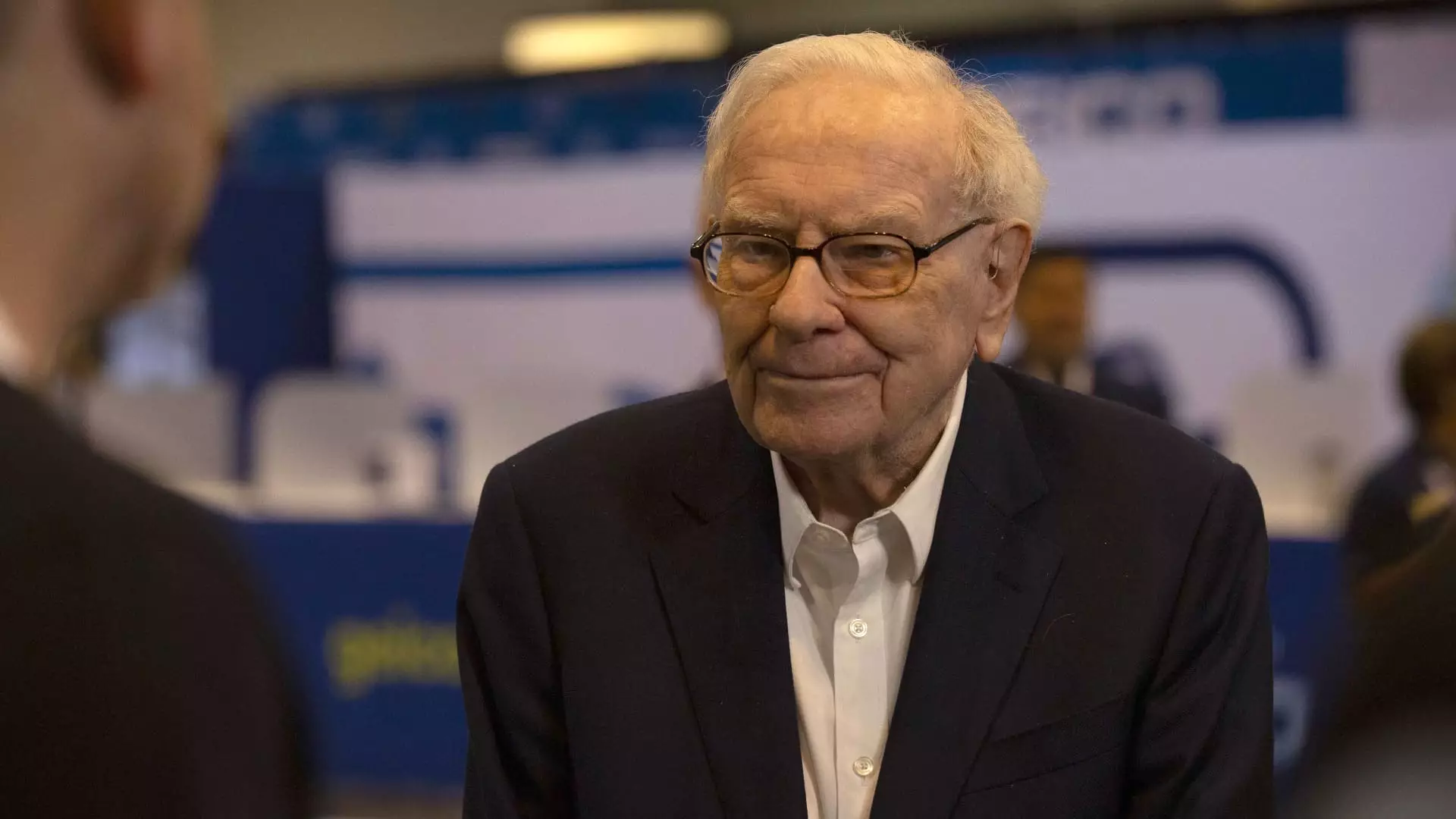Recent chatter surrounding Berkshire Hathaway’s potential divestment of its real estate brokerage, HomeServices of America, has raised eyebrows and ignited speculation about Warren Buffett’s confidence in a presently beleaguered industry. As reports from the Wall Street Journal indicate that the real estate firm Compass may soon acquire HomeServices, the implications of such a move extend beyond mere acquisition; they reflect deeper, systemic issues plaguing the real estate sector. While HomeServices’ CEO has publicly dispelled rumors of an impending sale, the reality behind these discussions suggests a significant erosion of faith in a market characterized by stagnation, inflated prices, and decreasing home sales.
Buffett, a titan of the investing world known for his buy-and-hold philosophy, has historically taken a long view, but the whispers of a sale echo a complicated narrative. The upheaval in the real estate landscape prompts us to wonder if Buffett—whose investment acumen has rarely faltered—has finally recognized the potential futility of his real estate bet.
The Weight of Lost Confidence
With Buffett’s propensity to hold onto investments until a clear pattern of decline emerges, the notion that he might abandon HomeServices is alarming. Historical parallels can be drawn from Buffett’s decision to divest his newspaper holdings, which, once viewed as gems of American business, ultimately crumbled under the weight of shifting consumer behavior and dwindling revenue streams. Today, similar red flags resonate in the real estate sector. The escalating challenges faced by HomeServices—ranging from dwindling net profits to increasing legal dismissals of established business practices—highlight a troubling trend.
The financial implications are stark. HomeServices posted a staggering loss of $113 million in 2024, a drastic reversal from the profits seen in preceding years. Such volatility raises crucial questions about the long-term viability of Berkshire’s real estate ambitions. If a seasoned investor like Buffett senses a permanent downturn, isn’t that a resounding alarm bell for the industry at large?
Litigation and Market Forces: An Unraveling Ecosystem
The pressure on HomeServices isn’t solely financial; it’s compounded by a cocktail of legal challenges and market forces conspiring against it. Recent settlements, including a punitive $250 million deal to resolve allegations of inflated commission structures, underscore a growing dissatisfaction among consumers. Homeownership should be a hallmark of the American Dream, yet instead, it appears increasingly fraught with obstacles.
Compounding these legal issues is a stark market environment. Rising mortgage rates and bloated home prices discourage potential buyers while concurrently wrenching the profitability of real estate businesses. With pending home sales hitting their lowest level since 2001, it’s clear that many Americans are choosing to sidestep the tumultuous real estate market altogether. Thus, if Buffett—a man known for his intuitive grasp of market trends—is suggesting a retreat from real estate, could this be a clue that the foundational elements of the sector are becoming untenable?
Buffett’s Legacy in a Shifting Landscape
The question, then, is not merely whether Berkshire Hathaway will sell HomeServices, but what a decision of this magnitude signifies about Buffett’s broader perspective on the future of American enterprise. The sagacity of his investment approach has, over the decades, relied on identifying economic beacons that endure. What does it say when someone of Buffett’s stature and insight appears to be signaling retreat amidst a market rife with uncertainty?
Moreover, reflections on his previous actions suggest a trend; when confidence wanes, the sell signal is almost inevitable. As the so-called Oracle of Omaha contemplates moving away from real estate, it presents an opportunity for investors and analysts alike to reevaluate their positions on similar industries facing secular challenges.
The Road Ahead: What Lies Beyond
As Berkshire Hathaway grapples with an industry in peril, observers must consider the broader implications of Buffett’s hesitance. What does this indifference toward one of America’s stalwart industries mean for future investment strategies? Will we witness a wider exodus from real estate investment, as both individuals and corporations recalibrate in response to market realities?
Dismissing Buffett’s possible divestiture as simply a temporary maneuver may obscure the larger truth of our current economic landscape. The potential upheaval in the real estate sector could serve as a touchstone for market evaluations going forward. If a legacy institution like Berkshire Hathaway is poised to relinquish assets, it is high time we all take note. The evolving nature of consumer preferences and market dynamics may be signaling a seismic shift that long-term investors cannot afford to ignore.

